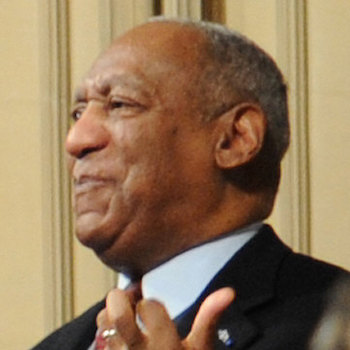You would have to make a concerted effort to turn off your television, unplug your radio, avoid all newspapers, cancel your internet service and not visit any public place in the United States to not hear the allegations about Bill Cosby being a serial rapist.
Like most things that seem to go viral on the internet, whether memes or actual news, the original source probably had no idea how big the end result would be. Stand-up comedian Hannibal Buress, best known to many of our readers as the comic foil of The Eric Andre Show, referenced Cosby’s constant cultural criticism in one of his live performances. Buress is not alone in thinking the elderly comedian is out of touch with the young people who he chastises for “their hat on backwards, pants down around the crack” – but when Buress took his shot at Cosby he opened up Pandora’s Box.
“He gets on TV, ‘Pull your pants up black people, I was on TV in the 80s! I can talk down to you because I had a successful sitcom!’ Yeah, but you rape women, Bill Cosby, so turn the crazy down a couple notches.”
This could actually have gone complete under the radar had Cosby (or his social media manager) not had the unfortunate suggestion to turn a smiling photo of Bill Cosby into a meme. This created a firestorm of recycled Cosby photos with captions about wearing his “raping hat” or being “America’s most beloved serial rapist.” Old allegations that had been dismissed by Cosby and his legal team began to resurface in the media, while new additional ones came to light. Here’s one example.
Now to be perfectly clear, these allegations that Bill Cosby is a rapist are exactly that – ALLEGATIONS. Bill Cosby has never been convicted of a crime, never plead guilty to sexual assault, and has never even been prosecuted on the grounds of these accusations. Some of his accusers may simply be jumping on the bandwagon now that the allegations have caught media attention. In other cases that’s not so clear. One district attorney in Pennsylvania actually wanted to prosecute Cosby and found him “evasive” in interviews about his alleged crime. Lacking physical evidence he had to drop the case, and Cosby eventually settled out of court with his accuser for an undisclosed sum.
Out of court settlements are by their very nature neither proof of innocence nor guilt – they are after all “out of court” meaning both parties agree to dismiss legal proceedings and move on with their life. You can settle a claim to make it go away if it’s a waste of your time and money, and Mr. Cosby may have felt that way. You can also settle a claim if you think you may not be exonerated in court, and settling with your accuser/alleged victim is easier than the hit your public image will take. A settlement can create the appearance you have something to hide though – just ask Michael Jackson. Mr. Cosby is within his rights to refuse to respond to what his lawyer calls “groundless decade-old allegations,” but to some observers that refusal to comment is in itself troublesome.
Neither I nor RapReviews take a position on Cosby’s innocence or guilt in the multiple allegations against him, but what’s certainly noteworthy is that Cosby is unable to contain or control the firestorm that’s swirled around him. The same young people he seems so out of touch with are so much more adept at using social media and spreading the message about his accusations than he is, and by refusing to comment he’s letting their voices be the only ones heard on the subject. Some might argue he should spend a little less time worrying about kids with their saggy pants and backward hats (and even those notions of hip-hop fashion and urban culture seem as out-of-date as Cosby) and a little more worrying about the fact all of his comedy specials have been canceled and TV Land no longer wants to air reruns of The Cosby Show.
William Henry ‘Bill’ Cosby may just hope that if he says nothing and ignores the situation that eventually it will all go away, but if cultural critics should have learned anything by now, it’s that any skeletons they have in their closet will come to light the moment they act holier-than-thou when criticizing the morals and values of other people.

